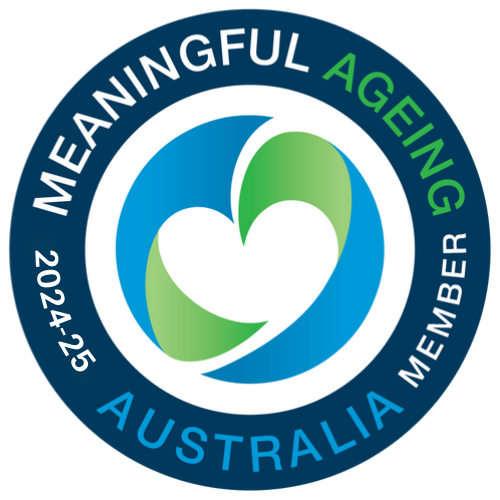Chronic wounds pose a significant challenge to individuals’ well-being, often relying on specialised care to facilitate the healing process. Alongside medical interventions, wound dressings, and proper hygiene, the role of nutrition in wound care is a vital yet often overlooked aspect.

In this article, we’ll explore how nutritional therapy and a specialist wound care diet can make a substantial difference in chronic wound care.
Understanding the Basics: How Wounds Heal
From minor to chronic, all wounds undergo the same distinct three-phase journey of inflammation, proliferation, and remodelling to heal successfully. One thing that can benefit any type of wound is nutrition.
The potency of specific nutrients and their role in this transformative journey towards healing is integral. Picture the body’s immune forces being roused into action during the inflammation phase, working diligently to clear away debris and set the stage for healing. At this crucial time, specific nutrients begin wielding antioxidants and vitamins to harmonise with the body’s rhythm. In turn, this collaboration orchestrates the delicate balance of managing inflammation and feeding the immune system, cultivating the environment for the wound to mend.
For effective healing, it seems nutrition and wound care management go hand in hand.
The Nutrient Powerhouses for Wound Healing
In the realm of wound care nutrition, specific nutrients emerge as pivotal factors in the intricate process of healing. These nutritional powerhouses include:
- Protein: Essential for collagen synthesis, proteins facilitate wound closure and tissue regeneration while supporting immune function to prevent infections.
- Vitamins (C, A, E): Acting as antioxidants, these vitamins alleviate oxidative stress and promote a robust immune response. Notably, Vitamin C is critical for collagen synthesis.
- Minerals (Zinc, Copper): Catalysts for vital enzymatic reactions, these minerals contribute to wound healing. Zinc aids immune function, cell proliferation, and protein synthesis, while Copper supports collagen structure.
- Omega-3 Fatty Acids: Rich in anti-inflammatory properties, these healthy fats play a role in reducing chronic inflammation commonly found in chronic wounds. Found in sources like fatty fish and nuts, they aid the healing process.
Together, these nutrients create an optimal environment for wound healing. Incorporating them into a comprehensive wound care diet ensures that the body’s inherent healing mechanisms are primed for success.
The Key Role of Vitamins and Minerals
Essential to any diet, vitamins and minerals are just as critical for wound care management and healing, as follows:
Vitamin C: Defers collagen synthesis, strengthens the skin, and reduces the risk of bleeding.
Vitamin K: Found in leafy vegetables, meat, and dairy, and supports bone and coagulation protein modification.
Vitamin E: Found in nuts, seeds, and vegetable oil, and acts as an antioxidant and anti-inflammatory agent, preventing blood cell death.
Zinc: Maintains cell membrane integrity to prevent oxidative damage and promotes metabolism from carbohydrate and protein.
Tailoring the Diet for Healing
Proper nutrition is crucial for healing chronic wounds, with various nutrients needed, and a balanced diet advised.
Crafting a wound care diet involves selecting nutrient-dense foods that support the body’s healing mechanisms. Lean meats, poultry, fish, and legumes provide ample protein for tissue repair. Whole grains offer a source of energy and fiber, aiding in digestion and overall health. Colourful fruits and vegetables supply essential vitamins, minerals, and antioxidants required for immune function and collagen synthesis.
Hydration is equally critical; proper fluid intake helps maintain optimal blood flow and nutrient delivery to wound sites. Conversely, avoiding excessive sugar and processed foods is essential, as these can contribute to inflammation and hinder the healing process.
Special Considerations: Diabetes and Chronic Wounds
Individuals with diabetes face additional challenges in wound healing due to compromised circulation and neuropathy. Tailoring nutrition strategies to address these unique challenges is imperative. A diabetic wound care diet should focus on controlling blood sugar levels, supporting cardiovascular health, and promoting tissue repair. Increasing the intake of complex carbohydrates, lean proteins, and healthy fats can contribute to better glycemic control and overall wound healing.
Future Directions for Wound Care Nutrition
Research in nutrition and wound care continues to uncover novel interventions. Nutritional therapy for wound healing is an area of active investigation, exploring the potential of specific nutrients to enhance recovery. Amino acids, antioxidants, and probiotics are just some of the potential tools emerging said to expedite healing and prevent further complications at the wound site.
As research progresses, it is likely that personalised nutrition plans tailored to an individual’s needs will become the norm, revolutionising today’s approach to chronic wound care management. This will see nutrition and wound healing nursing coming together to form a stronger alliance to heal chronic wounds more effectively.
Final Words
In the realm of chronic wound care, nutrition stands as a fundamental pillar of healing. A carefully curated wound care diet can provide the body with the necessary tools to navigate the complex stages of wound healing successfully.
As Vital Home Health Services strives to provide comprehensive care, our expertise in nutritional support for chronic wound care aligns with the broader objective of promoting overall well-being and quality of life for patients.
References:
- Smith J, Nutrition and Wound Healing: Strategies for Chronic Wound Care, Advances in Skin & Wound Care, 2019.
- Gupta SS et al., Role of Nutritional Modulation in Wound Healing, Advances in Wound Care, 2020.
- Matthews A, Doward L. Nutritional requirements for wound healing. J Wound Care. 2009;18(8):347-350.
- Kim J, Han SH, Lee JE, Lee JH. Anti-Inflammatory Effect of Omega-3 Polyunsaturated Fatty Acid Is Mediated by the Activation of AMP-Activated Protein Kinase. Immune Netw. 2019;19(6):e43.








